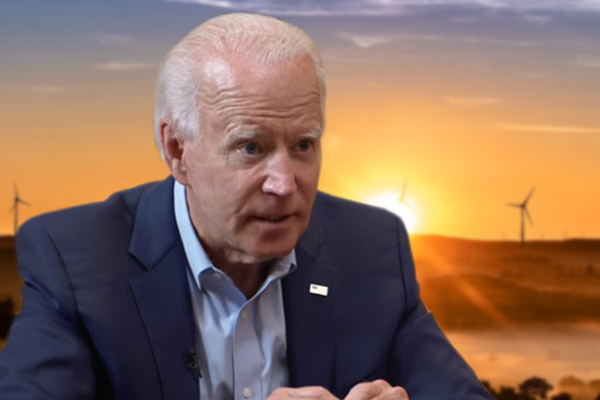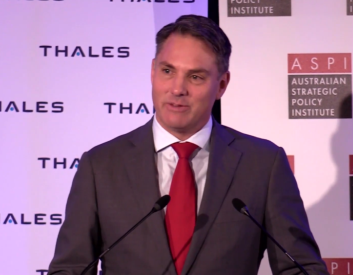Michael Bloomberg’s four-month, multi-million dollar attempt to buy the Democratic nomination has ended with a fizzle, writes Tim Cornwall.
AFTER LESS than four months of incredibly expensive campaigning, billionaire and former New York Mayor Michael Bloomberg's attempt at buying his way to the most powerful position on Earth is over.
He spent more than $US400 million ($AU598 million) on advertisements for his run as Democratic nominee for U.S. president, and from all reports, Bloomberg ads were everywhere in America throughout his campaign.
The direct influence from advertisements was only the start: he had also bought the graces of the media and rule changes from the Democratic Party itself.
According to the polls, Bloomberg’s late run for the Democratic nomination was building momentum. Since announcing his candidacy in November last year, Bloomberg’s polling numbers rose steadily with around 2% soon after his launch, 5% at the beginning of the new year and as high as 16% going into Super Tuesday. In saying that, he was still ten points behind a rising Joe Biden and 13 points behind a steadying Bernie Sanders. While Sanders’ and Bloomberg’s policy platforms couldn’t be further apart, they do share the trait of having unprecedented styles of campaign funding.
While Bernie Sanders is running one of the broadest campaigns in U.S. political history, Bloomberg’s funding came entirely from his $US62 billion ($AU93 billion) fortune. In three short months, he spent more on advertising than Barack Obama spent on his entire re-election campaign of 2012.
Bloomberg’s big advertising spend not only affected the consumers who could not escape them, but this flow of cash coming into media companies’ coffers is inevitably going to affect their coverage. From his stop-and-frisk policy that was highly discriminatory to his comments advocating for a cut to pensions in the U.S., the former Mayor’s policies are unpopular and easily criticised. But with the volume of advertising money going to a TV or radio station from one man, the likelihood of substantial criticism diminishes quickly.
Advertising isn’t the only weapon Michael Bloomberg’s abundant wealth allowed him. Days before the beginning of his campaign in November 2019, he donated $US300,000 ($AU449,410) to the Democratic National Committee and $US800,000 ($AU1.2 million) to the Democratic Grassroots Victory Fund (a coalition of the state Democratic parties).
With Bloomberg known as the most important donor to the Democratic Party and with his recent flurry of activity, the Democratic Party made their own concessions. The many debates held throughout this process have had rules in place blocking a candidate without grassroots support. The thresholds are raised as the campaign unfolds, with the debate in New Hampshire requiring 225,000 individual donors.
The Democratic Party conveniently changed the rules for these debates, paving the way for Bloomberg to participate in the Nevada debate and build his momentum – money talks.
The national wing of the Democratic Party wasn’t alone in its sudden income from Bloomberg. Donations have gone to 27 different state Democratic parties ranging from $5,000 to $10,000. With a few dollars in each of the states’ pockets, Bloomberg’s position at the Democratic National Convention will be powerful should the nominee not already be decided. Bloomberg’s strategic philanthropy and his favourability among the Democratic elite may present an ugly situation in July.
Even if Bloomberg was not attempting to buy the nomination, there were plenty more problems with his policies themselves. As Mayor of New York City, Bloomberg implemented a program of stop-and-frisk which disproportionately affected African-Americans and Latinos. The policy was ineffective, only leading to a conviction 3% of the time and it struck fear into the minority neighbourhoods of New York.
Bloomberg has since apologised and claims that he cut stop-and-frisk by 95%. He’s right, but he declines to mention two things.
First, he only did cut it back after a U.S. court ordered him to stop because it was in violation of the residents’ basic constitutional rights. Bloomberg appealed that decision even as he was leaving the office in 2013. Second, he increased the policy sevenfold from 2002 (97,296) to 2011 (685,724) before the court ordered him to cut it back.
Bloomberg’s poor policy record doesn’t stop there. He oversaw another unconstitutional program while Mayor of New York, this time spying on Muslim communities in the wake of 9/11. He worked with the CIA to target mosques, student associations and community groups. They would recruit informants facing petty crime charges and use them to "create and capture" – meaning create controversial conversations and inform the police of the results. This unconstitutional campaign of spying was completely ineffective and never led to one arrest.
Beyond that, had Bloomberg received the nomination, it would have made at least one American happier: current President Donald Trump. The President stated publicly that he would rather face “mini Mike” Bloomberg than Bernie, referring to the fact that Bloomberg is buying his way to the presidency, whereas Sanders has “real followers”.
The latest polling reflects Trump’s opinion, with Bernie in the lead as the best candidate to defeat the President.
While Bloomberg did not run in the early stages of the race, he was relying on his advertising spend to kickstart his campaign on Super Tuesday. This gamble proved too much, with the billionaire winning only one contest in American Samoa and falling far behind the frontrunners Bernie Sanders and Joe Biden. Bloomberg dropped out of the race following the disappointing showing, putting his support behind Joe Biden.
This is yet another twist in a turbulent Democratic race, with a consolidation of so-called moderates to counter the surge of a once-rising Bernie Sanders.
Tim Cornwall is a writer and video creator with interests in politics, media bias, technology and philosophy. You can follow Tim on Twitter @tijaco_
 This work is licensed under a Creative Commons Attribution-NonCommercial-NoDerivs 3.0 Australia License
This work is licensed under a Creative Commons Attribution-NonCommercial-NoDerivs 3.0 Australia License
Support independent journalism Subscribe to IA.












